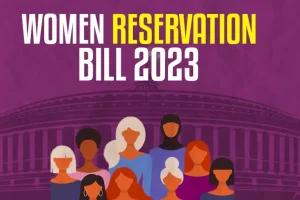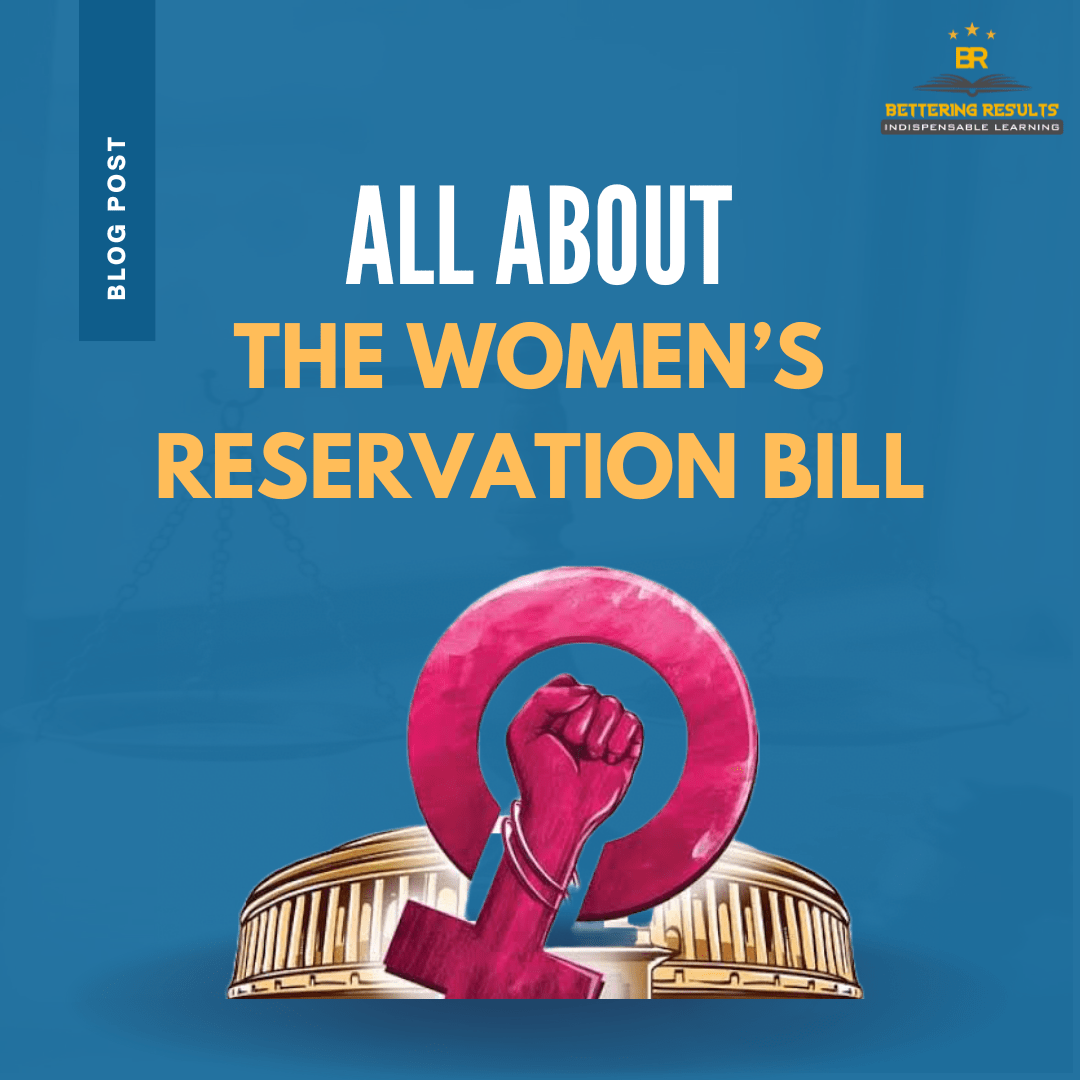The Parliament of India has recently passed the historic women’s reservation bill unanimously. The Constitution (One Hundred and Twenty-Eighth Amendment) Bill 2023 or the Nari Shakti Vandan Adhiniyam aims to increase women’s participation in the political sphere.
The Women’s Reservation Bill is the first legislation to be cleared by both Houses in the new Parliament building. The voting proceedings were presided over by Chairman Jagdeep Dhankhar.
After decades of discussion on low representation of women in the Parliament which is just about 15%, this led to the introduction of this bill in Parliament.
This is not the first time that a bill seeking reservation of seats for women in Parliament has been introduced; previous attempts were made in the years 1996,1998, 1999, and 2010. However, these bills never saw the light of the day.

Let’s look at the highlights of the new Bill:
- The Constitution (One Hundred and Twenty-Eighth Amendment) Bill 2023 seeks to reserve one-third of all seats for women in the Lok Sabha and the state legislative assemblies. The allocation of reserved seats would be determined by such authority as decided by Parliament.
- Out of 33%, one-third shall be reserved for women from scheduled castes and scheduled tribes in the Lok Sabha and the state legislative assemblies.
- Seat for women would also be reserved in the legislative assembly of Delhi:
- -One third of the seats reserved for scheduled castes in Delhi’s legislative assembly would be reserved for women.
-One third of seats filled by direct elections in Delhi’s legislative assembly would be reserved for women. - Rotation of seats for women in Lok Sabha, legislative assembly of states and Delhi will take place after each subsequent delimitation exercise as Parliament by law decides.
- Reservation of seats for women would cease to exist 15 years after the commencement of this amendment act.
The key thing to note here is that the reservation of seats will be implemented after delimitation is undertaken after taking into account relevant figures as per the new Census of India after commencement of the amendment act.
Conclusion:
India already has the reservation of women in municipalities and panchayat provided by Article 243D and Article 243T in the constitution. The passing of this new Women’s Reservation bill marks a solid step in strengthening the role of women in the political arena. However, the implementation of the bill is said to not take place until the completion of the census and redrawing of electoral constituencies or delimitation exercise is completed. Nevertheless, the bill may prove to be a right step in the long run.


